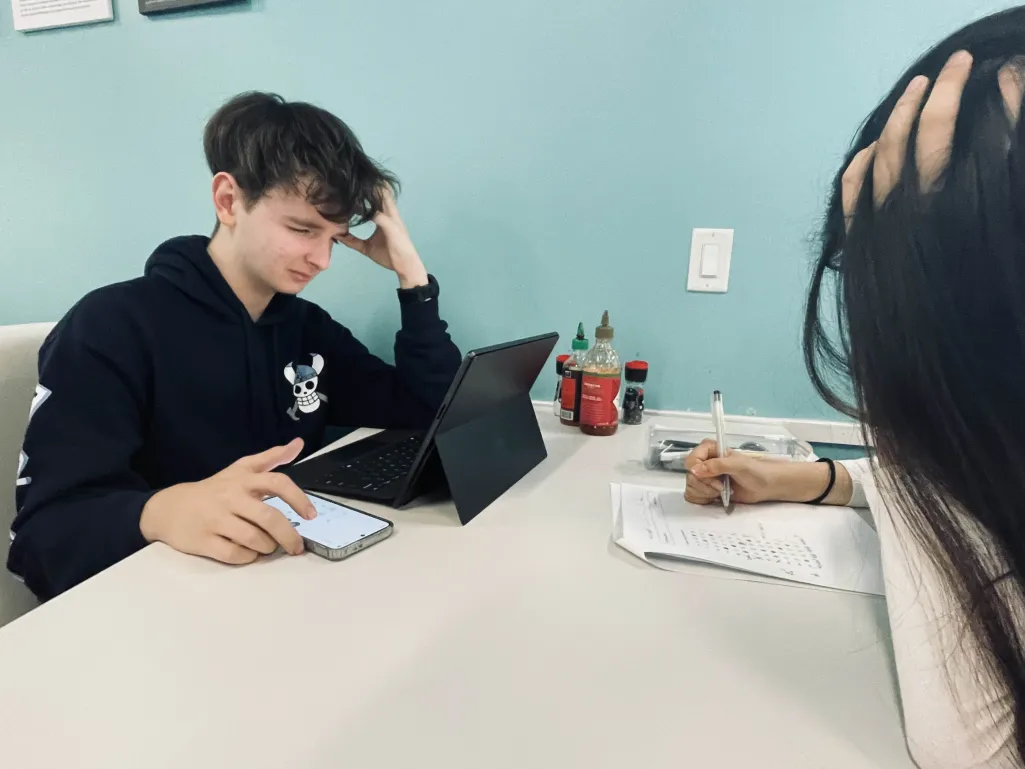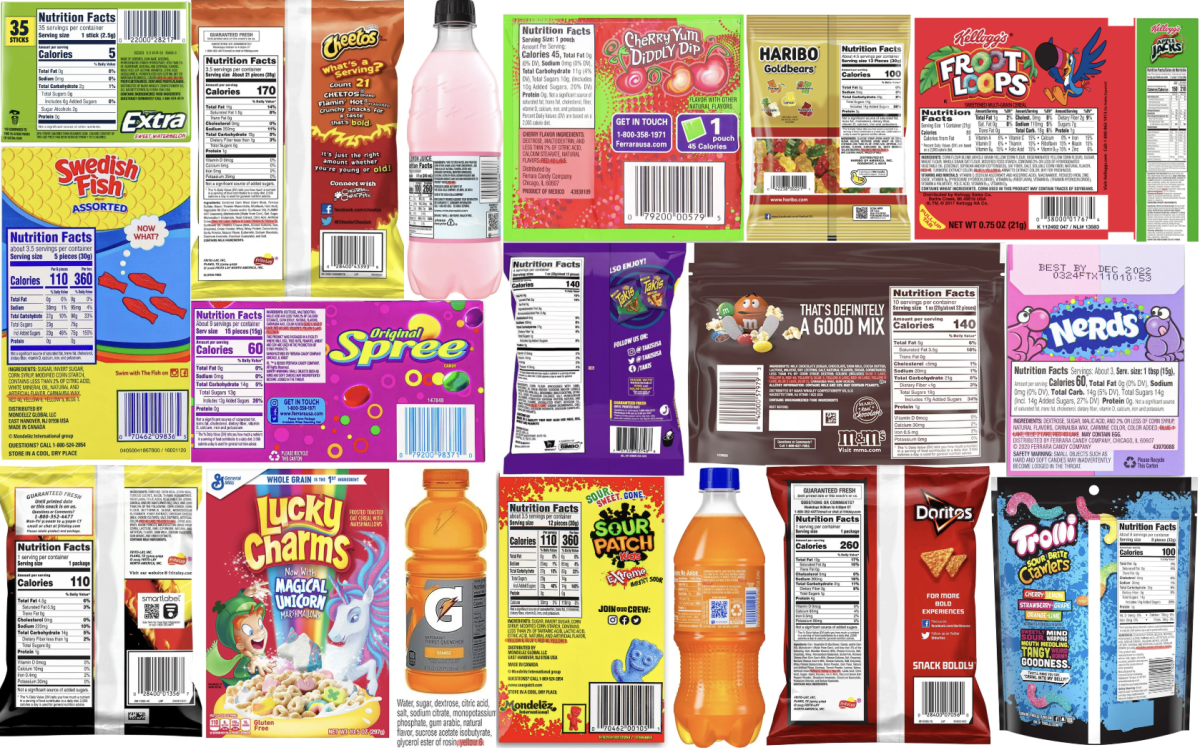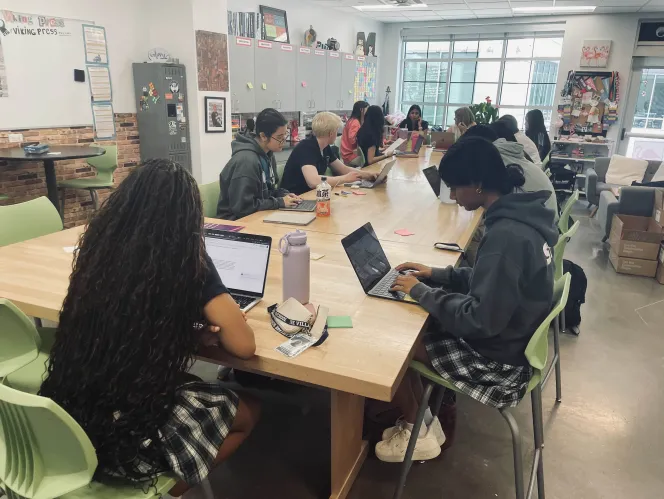High school is a phase of adolescence filled with academic, social, and extracurricular opportunities. The involvement of students in extracurricular activities is a common and beneficial aspect of their development. At The Village School, this commitment is not merely encouraged but celebrated as our institution believes in fostering an environment of excellence, as demonstrated through our nationally recognized Speech and Debate, Model United Nations, sports, and various other teams. Whether it’s participating in STEM competitions, joining creative arts clubs, or contributing to community service projects, The Village School offers numerous opportunities for students to immerse themselves in a variety of extracurricular pursuits because it recognizes the value of a well-rounded education that extends beyond the classroom. Engaging in extracurriculars not only broadens one’s horizons but also serves as a pathway to self-awareness, helping students identify their passions, strengths, and career interests. However, overcommitment to extracurricular activities can have significant implications for a student’s wellbeing. “Achievement and engagement are fundamental sources of youth development, but we need to consider what happens when the balance between achievement and emotional and social health is dismissed or underrated” said clinical psychologist Dr. Veronica Raggi. So, let’s consider.
Overcommitment to activities can result in a heavy workload that might hinder a student’s ability to focus on academic responsibilities. We students may find ourselves struggling to meet deadlines or study effectively to meet ghost expectations set by colleges. When students are spread too thin across various activities, their performance may suffer due to a lack of time and energy. “I’ve always been a high achiever, and I joined numerous clubs and organizations to enhance my college application, but my grades suffered, and I was constantly exhausted. I joined so many clubs that I never had time to relax, and it took a toll on my mental health,” said Subhodra Batabyal, a Graduate of the class of 2023, currently a freshman at University College London.
The stress of trying to manage academic demands, extracurricular obligations, and other responsibilities can lead to physical and mental exhaustion, often referred to as burnout. Students experiencing burnout may be fatigued, irritable, and unable to enjoy their activities or maintain a healthy lifestyle.
Engaging in too many activities can also lead to a decrease in the quality of participation. When students are spread too thin across various activities, their contributions may become less impactful, leading to a loss of genuine passion. The quality of their contributions may diminish, which can be detrimental to the students and the organizations they’re involved with. “I’ve since learned to prioritize myself. I now focus on activities I’m genuinely passionate about and where I can make a meaningful impact,” said senior Patricia Malaty. Prioritizing activities based on interests and passions is foundational to success. “Learning to say ‘no’ was crucial. I’ve become more selective about new opportunities, and I also ensure I have personal time for myself” said senior Yutika Agarwal.
Saying no to new opportunities or reassessing current commitments when they become too burdensome is essential. Students should prioritize personal well-being by allocating time for relaxation and self-care. Participating in extracurricular activities in high school is a valuable part of personal growth and development. However, students must be cautious not to fall into the trap of overcommitment.
By understanding the potential challenges and adopting strategies to manage their extracurricular engagements effectively, high school students can strike a balance that allows them to thrive academically and personally while pursuing their genuine passions. This balance can be achieved through more productive time management. High school students can utilize tools like calendars, planners, or time management apps to manage their extracurricular and academic commitments efficiently. This ensures that they meet all obligations without feeling overwhelmed.
In high school, success isn’t solely measured by the number of extracurricular activities a student is involved in or the grades they achieve; it’s deeply rooted in passion. It is crucial to understand that quality often trumps quantity and that genuine passion should guide one’s involvement in extracurricular activities. Passion drives students to excel, motivates them to persevere through challenges, and fuels their growth. Without a genuine passion for their chosen activities, students may find themselves on a path devoid of personal fulfillment and meaningful achievements. While overcommitting to extracurricular activities might seem like a strategic approach to building a strong resume, it is vital to understand that genuine enthusiasm and passion are the true cornerstones of success in high school. It’s not merely about quantity but the quality of engagement, as passion sustains a student’s commitment and makes the high school journey truly rewarding.
The Village School recognizes the importance of maintaining a healthy balance and offers plenty of support systems, including dedicated counselors who play a role in ensuring students’ mental health needs are met. In addition to providing avenues for academic and extracurricular excellence, we place a strong emphasis on fostering a supportive and nurturing environment. The presence of counselors underscores the school’s dedication to the mental health of its students, creating a space where individuals can seek guidance, share concerns, and receive the necessary support to navigate the challenges of high school life. This approach reinforces the notion that success is not just about achievements on paper but encompasses the well-rounded development of each student, acknowledging the significance of mental health in their journey toward success and fulfillment.
References:
Alsulami, S., Omar, Z. A., Binnwejim, M., Alhamdan, F., Aldrees, A. M., Al-Bawardi, A. A., Alsohim, M. S., & Alhabeeb, M. (2018). Perception of academic stress among Health Science Preparatory Program students in two Saudi universities. Advances in Medical Education and Practice, Volume 9, 159–164. https://doi.org/10.2147/amep.s143151
What Are The Effects Of Academic Pressure? (2021, November 23). Pacific Teen Treatment. https://pacificteentreatment.com/mental-health/what-are-the-effects-of-academic-pressure\
Zang, J. (2020, February 24). Overachieving in high school: Is it worth it? A Teen’s Palo Alto | Jessica Zang | Palo Alto Online |. https://www.paloaltoonline.com/blogs/p/2020/02/24/overachieving-in-high-school-is-it-worth-it








